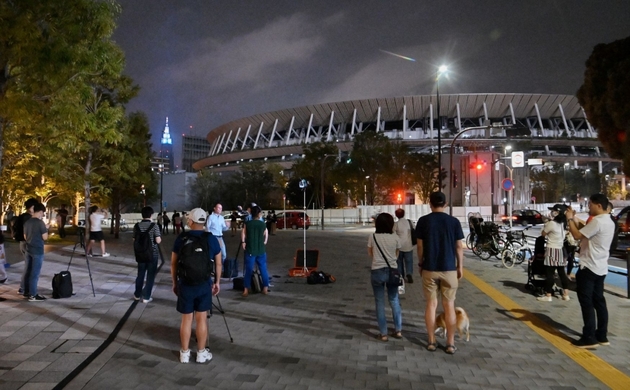Tokyo's Olympic Stadium was empty on Friday -- the day thousands were supposed to descend on the venue for the 2020 Summer Games -- marking the first time since World War II that the sporting event will not begin as scheduled, UPI writes in the article Originally set to open Friday, 2020 Tokyo Olympics hope to return in a year. Instead of hosting a big, flashy opening ceremony, the stadium was the site of a small event Wednesday to mark the one-year countdown until the new start of the rescheduled Games -- July 23, 2021.
Before this year, the Olympics have been canceled three times in the modern era, once during World War I in 1916 and twice during World War II, in 1940 and 1944. Also, this isn't the first time Japan has had to cancel as host city. The country was supposed to host the 1940 Summer and Winter Olympics -- back when the two were held in the same years -- but gave up its rights to do so when it declared war on China in 1937. Helsinki, Finland, was chosen as the new host city, but that event also fell through with Hitler's 1939 invasion of Poland. Germany was supposed to host the 1916 Games while London and Italy were on deck for the 1944 Summer and Winter Games, respectively.
Thousands of athletes from around the globe stayed home this week, continuing to practice for the delayed competition, some having to improvise their workout routines as gyms have been shuttered to stem the spread of the coronavirus. The International Olympic Committee postponed this year's Games in March, when COVID-19 began piling up in China and Italy. The pandemic would soon envelop much of Europe before making the United States and South America the new epicenters of the disease. To date, there have been more than 15.5 million coronavirus cases worldwide and 633,600 deaths, according to updated figures Friday from researchers at Johns Hopkins University in the United States. Japan is way down the list for total cases, 56th, with 28,500 and 992 deaths. By comparison, the United States leads all nations with 4.04 million cases and 144,300 deaths, according to Johns Hopkins data.
The spread of the disease prompted governments to cancel large, public gatherings and in some cases issue stay-home orders, requiring all non-essential businesses to close. The IOC said in May it anticipates the postponement of the 2020 Games will cost the organization an additional $800 million in expenses. Instead of welcoming an influx of visitors and tourist dollars on Thursday, the day before the opening ceremony on the original calendar, the capital city instead recorded its largest single-day increase in COVID-19 cases -- 366 -- topping the 300 mark for the first time. The spike has local officials concerned about a potential second wave of the virus. "It's a significant number," Tokyo Gov. Yuriko Koike told reporters. "I think we can consider this to be a warning that stronger public cooperation is needed" to halt the spread of the virus.
The spike in cases came one day after Japan launched its Go To Travel campaign to encourage tourism nationwide. Thursday marked the start of a four-day holiday weekend. Under the program, the government plans to subsidize up to half of travel expenses, as much as $12.6 billion. The Go To Travel program isn't, however, covering any travel to and from Tokyo due to the rising number of cases there.
Despite the slow return to tourism in their country this week, most Japanese now say they don't want to host the Summer Olympics. According to a poll conducted by Kyodo news agency last week, 34% said they oppose Tokyo staging the Games, while a little more than 36% said they'd prefer another delay. Less than a quarter of respondents said they're looking forward to the Summer Olympics next year. Of those who want the Games canceled or delayed further, about three-quarters said so because they believe the coronavirus can't be contained before then. Thirteen percent said their primary concern is that Japan should instead focus on fighting the virus, and 6% cited concern for the additional costs.






